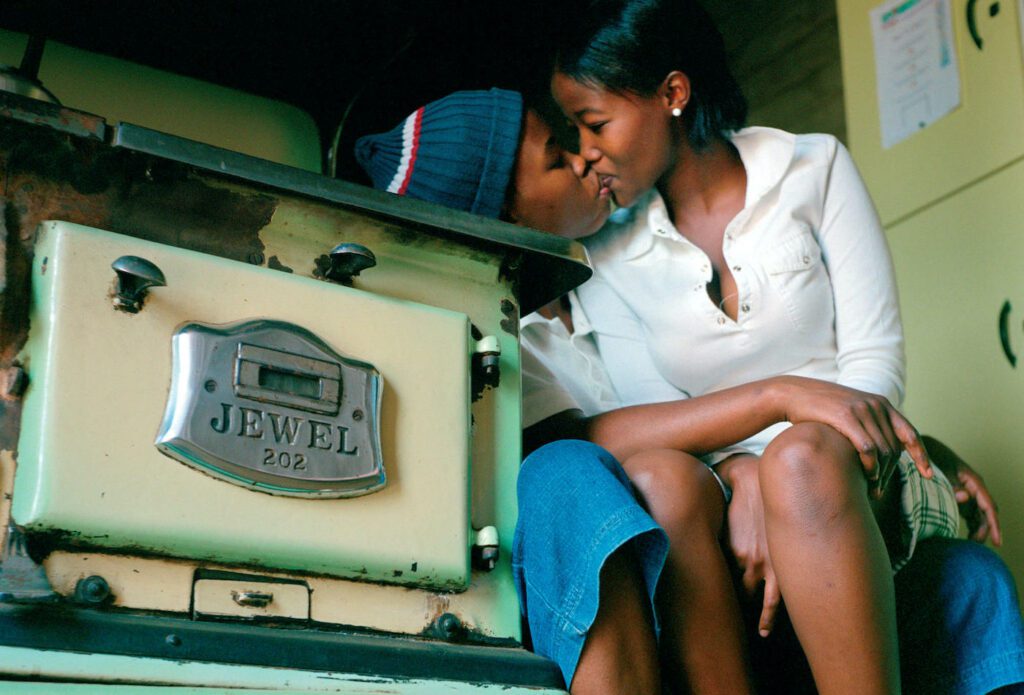Gardener Museum, Boston, United States
10 Feb 2022 - 08 May 2022

Zanele Muholi, Katlego Mashiloane and Nosipho Lavuta, Ext. 2, Lakeside (Detail), Johannesburg, 2007.
Being Muholi: Portraits as Resistance explores the life and work of internationally renowned photographer and visual activist Sir Zanele Muholi (b. South Africa). For a decade, Muholi, who uses they/them/their pronouns, has documented South Africa’s Black LGBTQIA+ community. Through their visual archive of representation, the artist captures intimate expressions of beauty, vulnerability, love, loss, and belonging, while simultaneously confronting issues of identity politics, selfhood, and Black queer visibility.
Being Muholi: Portraits as Resistance spans galleries in both the historic and new building. The exhibition features self-portraits in black-and-white and the U.S. debut of their colorful and expressive new paintings and a new bronze sculptural work. On view are rarely seen images from the artist’s ongoing, critically-acclaimed series, Somnyama Ngonyama, Hail the Dark Lioness, several of which were made during Muholi’s 2019 residency at the Gardner, and selections from Brave Beauties portraying Muholi’s chosen family in South Africa. Self-portraits made before and after the COVID-19 quarantine use found objects to address economic and environmental inequities. The exhibition also features poetic responses inspired by Muholi’s artistry penned by Boston Poet Laureate and 2021 artist-in-residence Porsha Olayiwola.
Muholi embodies the spirit of ubuntu, a Nguni Bantu term meaning “our shared humanity” and expressed in Zulu as “I am because we are.” They bring with them those who are often unseen, vilified, marginalized and misrepresented, helping us see our shared humanity, by making space for Black and LGBTQIA+ people to simply BE.
*Muholi uses they/them/their pronouns both to challenge the oppositional gender pronouns of “he” and “she,” and to acknowledge oneness with their ancestral and living communities.